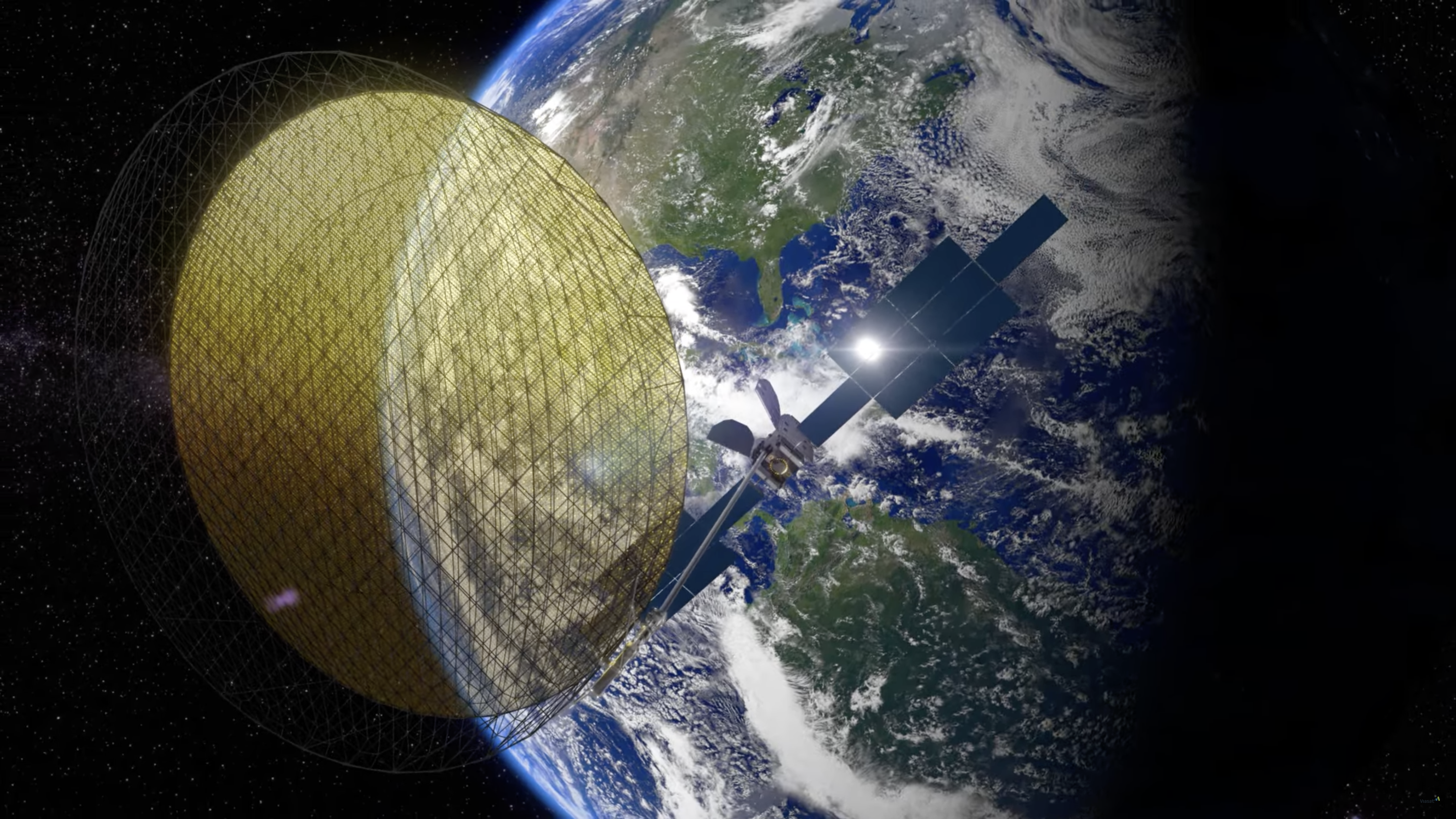TAMPA, Fla. — Viasat expects to start providing Wi-Fi to planes by the end of June from ViaSat-3 F1, the satellite that lost more than 90% of its 1 terabit per second capacity after an antenna deployment failure last year.
The geostationary satellite is otherwise performing well and should be operating commercially at some point in the second quarter of 2024, Viasat chair and CEO Mark Dankberg said during the operator’s Feb. 6 earnings call, after achieving between 200 and 300 megabits per second peak speeds during tests.
Dankberg said a recently completed investigation identified several corrective actions for ViaSat-3 F2, which has an antenna from the same supplier and was set to fly on a United Launch Alliance Atlas 5 rocket last fall but is now slated to launch in the first half of 2025.
While he did not name the antenna supplier, a CBS News report citing a Viasat executive before the April 30 SpaceX Falcon Heavy launch of ViaSat-3 F1 said Northrop Grumman’s Astro Aerospace provided the antenna.
Boeing has a contract to deliver three ViaSat-3 spacecraft in total for Carlsbad, California-based Viasat, which is providing the payloads.
ViaSat-3 F3, the third and final satellite in the constellation, uses a different antenna and remains on track for a launch in the fourth quarter of 2024 on an undisclosed rocket.
The original plan was for ViaSat-3 F1 to cover the Americas, ViaSat-3 F2 to focus on Europe, the Middle East, and Africa, and ViaSat-3 F3 to provide services over Asia Pacific.
Following the antenna issue, Viasat has said ViaSat-3 F1 will ultimately be replaced by ViaSat-3 F2 or ViaSat-3 F3 over the Americas and moved elsewhere.
Viasat has filed a $421 million insurance claim for the hobbled spacecraft and Dankberg said it has already received initial payments.
The operator is also in the middle of claiming $349 million in insurance proceeds for the total loss of Inmarsat-6 (I-6) F2, which ran into an issue with its power subsystem while raising orbit following a February 2023 SpaceX Falcon 9 launch.
Viasat has earmarked capital during its next fiscal year, which starts April 1, 2024, for potentially ordering a replacement for I-6 F2, built by Airbus Defence and Space to support the L-band connectivity business Viasat gained from buying British operator Inmarsat last year.
Inflight lift
Strong demand for commercial inflight connectivity (IFC) services helped revenues jump 73% to $1.1 billion for the three months to the end of December, compared with continuing operations in the same period the prior year, alongside growth in Viasat’s government business and sales derived from Inmarsat.
Viasat said it is providing Wi-Fi to more than 3,500 commercial aircraft, up 17% year-on-year, with over 1400 planes in the pipeline.
The company has been reallocating bandwidth to support IFC services in the wake of ViaSat-3 F1’s issues to combat a decline in the company’s fixed broadband business in the Americas, which depends more on the volume of bandwidth.
Revenue from satellite services increased 92% year-on-year to $581 million, but Viasat said this was flat when excluding Inmarsat’s contribution as fixed broadband subscriber declines offset growth from commercial IFC.
Inmarsat’s contribution for the third quarter of Viasat’s fiscal year 2024 was $443 million, up 12% year-on-year from Inmarsat’s standalone revenue in the prior year period.
Viasat reported a $124 million net loss for the quarter, compared with a $47 million net loss the prior year period, which it said was mainly due to increased interest expenses on the debt it incurred and assumed in the Inmarsat acquisition, as well as costs to integrate the two companies.
Related
Read the original article here
